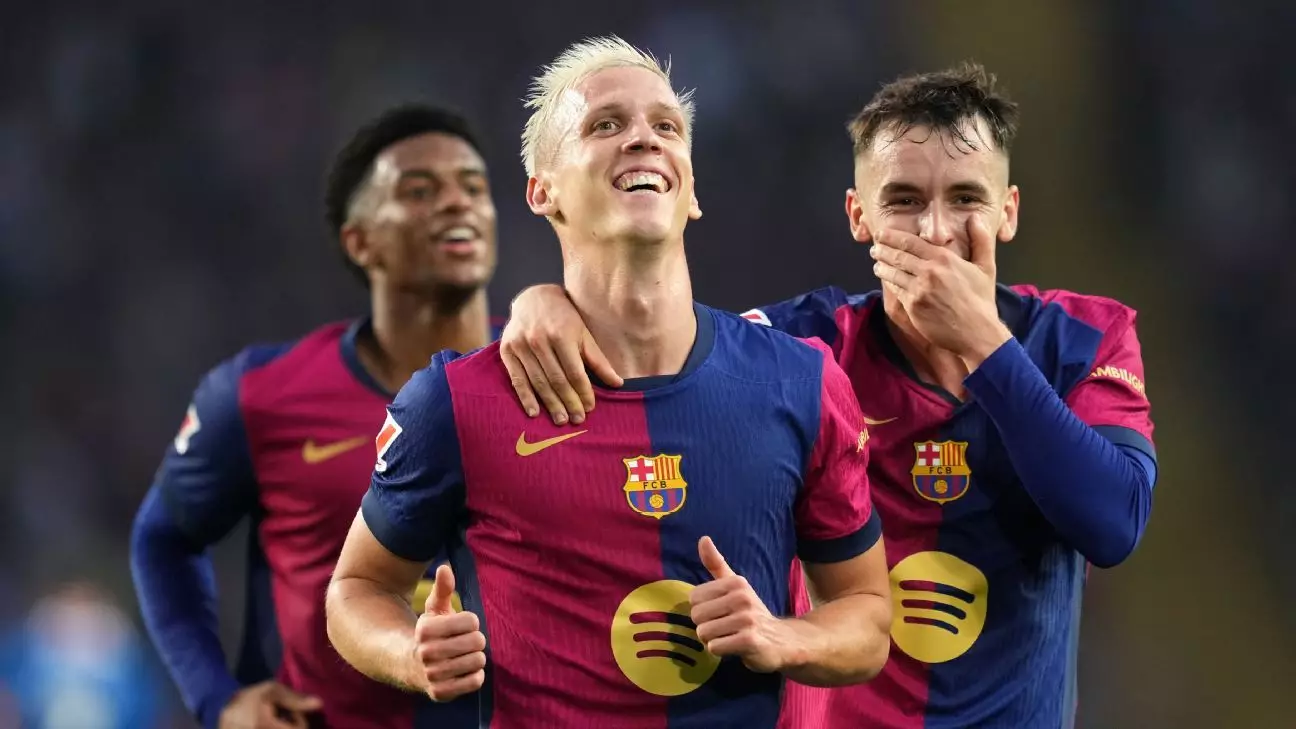In a significant turn of events for FC Barcelona, the club faces a challenging predicament regarding the registrations of two key players, Dani Olmo and Pau Víctor. Both players have been left off the team’s squad for the Copa del Rey match against fourth-tier Barbastro due to regulatory complications stemming from LaLiga’s financial fair play (FFP) guidelines. The inability to re-register these players marks a new chapter in Barcelona’s ongoing struggle to comply with league standards while navigating its precarious financial situation.
LaLiga, alongside the Royal Spanish Football Federation (RFEF), has confirmed the rejection of Barcelona’s request to re-register Olmo and Víctor for the ongoing season. This decision comes after the club failed to meet a crucial deadline on December 31, which required proof of adherence to LaLiga’s FFP regulations. The rules are in place to ensure that clubs operate within their financial means and promote long-term sustainability within the league.
Barcelona’s predicament underlines the steep challenges faced by a club historically rich in talent and resources. With their substantial debt and a bid to reclaim past glories, the club has relied on financial maneuvers that are now under strict scrutiny. The league’s insistence on compliance before reinstating any player further highlights the tension between financial management and sporting ambitions in modern football.
According to sources, Barcelona is not backing down from this setback. The club intends to appeal the RFEF’s decision at the Consejo Superior de Deportes (CSD), Spain’s supreme sports court responsible for sports-related disputes. The statement released by the club emphasizes their disagreement with the ruling and their determination to pursue all legal avenues available.
This appeal is more than just a procedural step; it reflects a larger strategy to challenge the existing FFP interpretations. The decision to involve the CSD indicates Barcelona’s commitment to not only the interests of the club but also those of the players, who find themselves in limbo due to regulatory interpretations that they had no part in creating.
Both Olmo and Víctor rejoined Barcelona in the summer but were initially registered on a temporary basis, leveraging a loophole that enabled the club to utilize salary allowances from injured players such as Andreas Christensen. The cited rule allowed Barcelona to maneuver its financial limitations creatively, but ultimately, it proved to be a double-edged sword.
The scenario is increasingly frustrating for the players, both of whom have expressed disappointment in being unable to contribute on the pitch at such a crucial juncture in the season. This is compounded by the `release clause` in their contracts, which provides an exit path should they remain unregistered. However, sources state that both players are reluctant to activate these clauses. The emotional commitment to the club runs deep; despite their current predicament, they wish to stay and fight for their place in the squad.
Barcelona’s broader financial strategy has included high-profile decisions, such as selling VIP boxes at the Spotify Camp Nou. The sale, expected to raise significant funds, was intended to provide the financial bandwidth to satisfy the league’s FFP requirements, but Barcelona’s inability to finalize the deal before the critical deadline has only intensified the scrutiny faced by the management.
This situation brings into focus the precarious balance that football clubs must maintain as they strive to invest in talent while adhering to strict financial regulations. The inability to finalize necessary contracts and the subsequent delays in documentation have rendered Barcelona vulnerable in a competitive market. As they battle legal complexities, the club is forced to assess its long-term viability and consider how to navigate these restrictions while maintaining a semblance of competitiveness on the field.
The case of Olmo and Víctor encapsulates the broader narrative within European football regarding financial governance and competitive integrity. Barcelona must navigate these turbulent waters while recalibrating its ambitions against the backdrop of regulatory frameworks designed to level the playing field. The upcoming legal battle serves not only as a vital point of resolution for the current situation but potentially as a precedent that may impact how clubs deal with FFP in the future.
The struggles of FC Barcelona illustrate a pivotal moment in the world of football where financial prudence must coexist with the relentless pursuit of success. As the club fights to retain its talents in the face of stringent regulations, the outcome of this confrontation will undoubtedly shape its trajectory for seasons to come.
